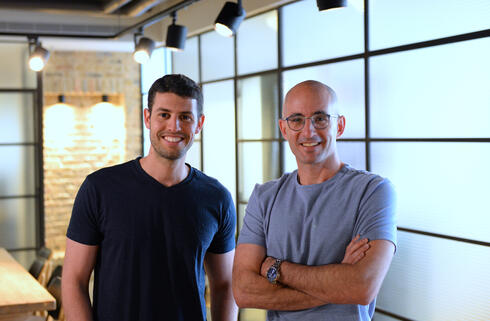
The Israeli startup earmarked by Nvidia as key to solidifying AI dominance
After breaking new ground with the $6.9 billion acquisition of Israel’s Mellanox five years ago, Nvidia is hoping that the purchase of Israeli startup Run:ai will ensure it finds new growth engines and remains on top in the AI race
Despite its dominant position in the AI chip market, Nvidia knows that it still has gaps to close when it comes to software. This is where the potential acquisition of Israeli startup Run:ai comes into play. According to estimates, the deal is worth hundreds of millions of dollars and may even reach a billion dollars.
Full list of Israeli startup M&As in 2024
Nvidia's market capitalization currently hovers around $2.2 trillion, making it the third most valuable company in the world after going from a valuation of $1 trillion to more than $2 trillion in just nine months.
However, Jensen Huang, the company's founder, understands that just as it has overtaken many competitors on the way to the top, such as Intel, if it becomes complacent, it too could be leapfrogged. Nvidia employs about 30,000 people worldwide and about 3,200 in Israel, most of them in Yokneam and Tel Aviv.
In 2023, Nvidia presented revenues of almost $61 billion, more than double compared to 2022, which amounted to approximately $27 billion. As part of the company's report, it became clear that its revenues from communications activities amount to approximately $13 billion, an activity that is largely based on the acquisition of the Israeli company Mellanox for $6.9 billion in 2019.
Israel is a strategic center for Nvidia and it is expected to soon announce its new acquisition in Israel - the startup Run:ai, which was established in 2018 and has raised $118 million to date, among others from Tiger Global, Insight Partners, TLV Partners, and S Capital VC.
Run:ai was founded by Omri Geller (CEO) and Dr. Ronen Dar (CTO). The two met during the course of their studies at Tel Aviv University’s Faculty of Electrical Engineering. Dar used to be a researcher at Bell Labs and an algorithm engineer at Anobit Technologies, and later at Apple after it acquired the company. Until founding Run:ai, Geller worked at the Prime Minister’s Office Technological Unit.
Related articles:
Run:ai has developed an orchestration and virtualization software layer tailored to the unique needs of AI workloads running on GPUs and similar chipsets. Run:ai’s Kubernetes-based container platform for AI clouds efficiently pools and shares GPUs by automatically assigning the necessary amount of computing power – from fractions of GPUs, to multiple GPUs, to multiple nodes of GPUs.
“We are an AI operating system. AI has been around for many years, but what has changed over recent years is the available computing resources that have allowed AI to blossom,” Geller told Calcalist when the company announced its Series C two years ago. “As with any hardware revolution, there is a need for a software layer to best utilize it, the way for example Windows makes it possible to install software on your computer.”
For Nvidia, this acquisition is much more than just another purchase of technology. The company is looking for quality and available personnel and Run:ai employs over 100 people who are experts in many fields, including artificial intelligence. This workforce can be used as a foundation for the establishment of a center with thousands of employees similar to the one it built on the basis of the purchase of Mellanox.
The acquisition of the Israeli company, should it take place, will provide Nvidia with another piece of the AI puzzle. The addition of the Israeli company's software layer on top of Nvidia's chips is a significant boost for the company. Nvidia currently mainly appeals to huge companies that can purchase its chips, but the purchase of the Israeli company will open up huge new markets for it, which thanks to its marketing power can turn the Israeli startup into a new and powerful engine of growth. The platform can make artificial intelligence more accessible to small and medium-sized enterprises, and expand Nvidia's markets. Today, the costs of using the cloud and artificial intelligence are huge. The Israeli company's technology can significantly help organizations manage their computing resources more efficiently and thus reduce costs.
In addition, one of the biggest issues in the AI world is the training of the models that run artificial intelligence applications. Today this action requires enormous resources and precious time. Run:ai can significantly shorten the training time of AI models in large and small organizations, thus saving many resources.
